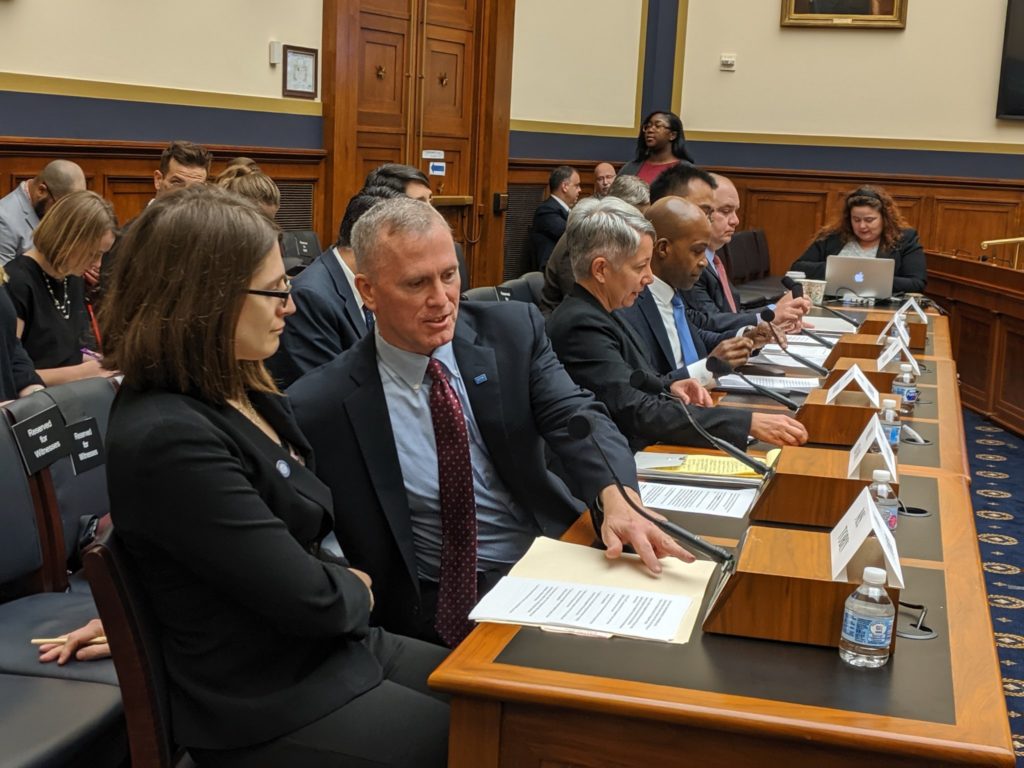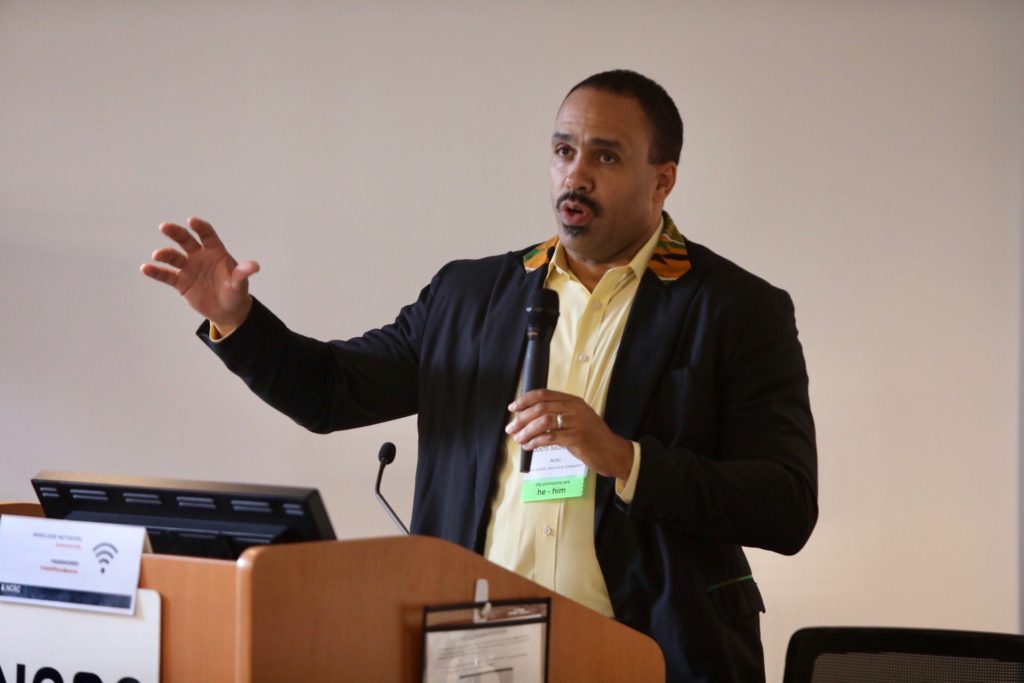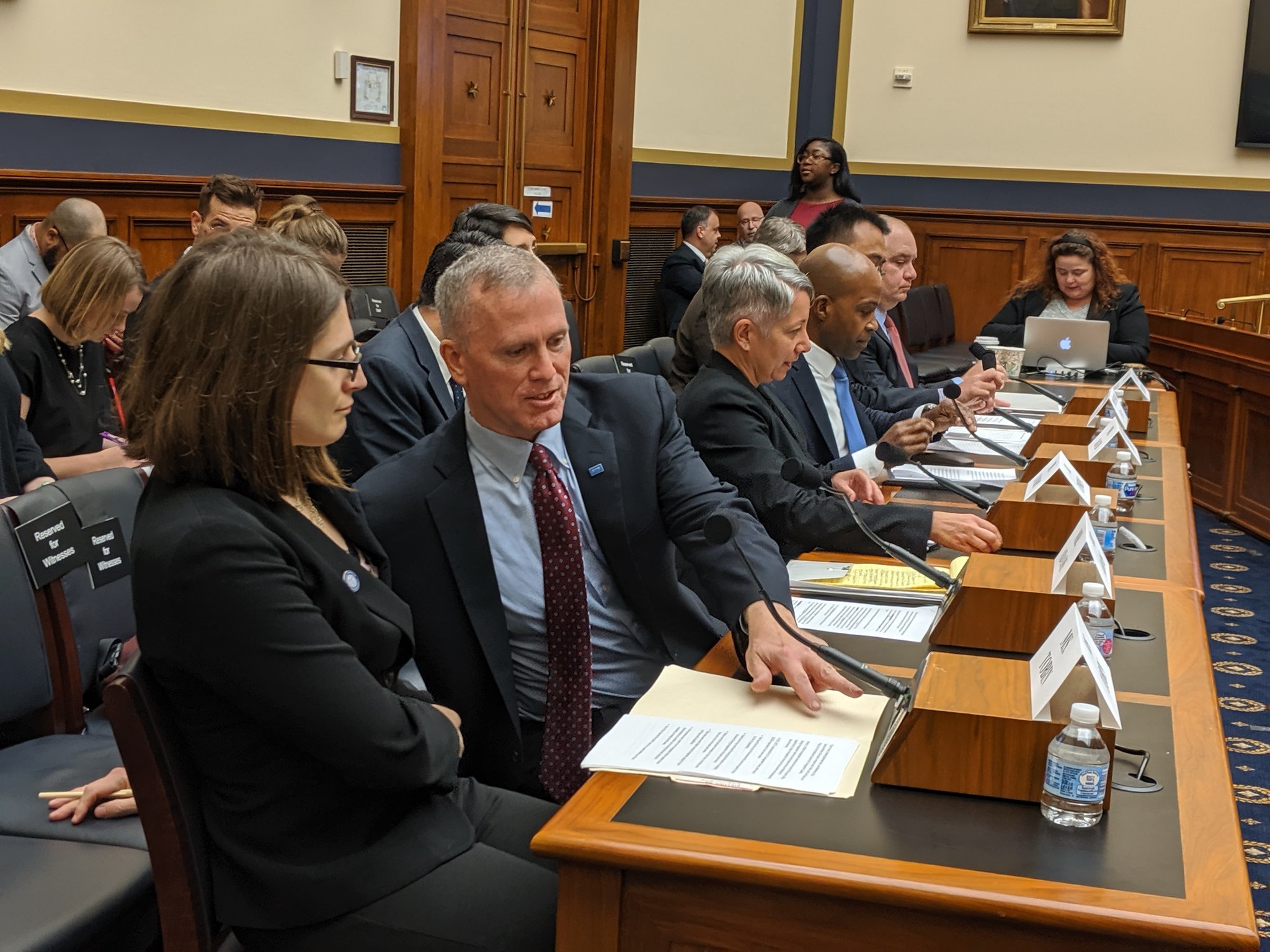SAGE, with support from Citi Community Development, will gather experts in the housing field to elevate LGBT elder housing issues and collaborate on innovative partnerships and solutions

SAGE CEO Michael Adams getting ready to speak at the House Financial Services Subcommittee on Oversight and Investigations hearing on LGBT discrimination in lending and housing. (photo courtesy of SAGE)
On Tuesday, October 29th, SAGE brought together housing developers, nonprofit practitioners, and policy experts from across the nation for a history-making inaugural LGBT Housing Symposium at the National Community Reinvestment Coalition (NCRC) in Washington, D.C. With support from Citi Community Development, the event sponsor and an LGBT elder champion, participants will discuss how to develop culturally competent LGBT-affirming housing and establish new partnerships to increase LGBT-inclusive housing nationwide.
“Despite celebrating our progress over the 50 years since the Stonewall uprising, LGBT older people still face high rates of discrimination—especially when seeking increasingly limited affordable housing,” said SAGE CEO Michael Adams. “LGBT elders are facing locked doors when finding a place to live. In 26 states across the country, people can be evicted or refused housing simply because of who they are or whom they love. That’s why SAGE created our National LGBT Elder Housing Initiative —to make the housing sector more welcoming of LGBT older people – and why we are bringing together thought leaders at this groundbreaking symposium today.”

Dedrick Asante-Muhammad, Chief of Equity and Inclusion at the National Community Reinvestment Coalition, speaks at SAGE’s housing symposium on 10/29. (photo courtesy of SAGE)
Finding a safe, affordable home to grow old in is a concern for so many older people in this country. Older LGBT people’s concerns are exacerbated by experiences of discrimination—by property managers, staff, other residents, or service providers—when seeking rental and senior housing. A recent study found that 48% of same-sex couples are subjected to discrimination when applying for housing. Housing for LGBT elders can be miserable or even life-threatening. Compared to their heterosexual peers, LGBT elders are:
• Twice as likely to be single and live alone
• Four times less likely to have children
• Far more likely to have faced discrimination and social stigma
• More likely, therefore, to face poverty and homelessness and to have poor health
“The LGBT population age fifty and above is expected to grow from 3 to 7 million over the next decade, yet there are only about 600 units of affordable housing that are equipped with the appropriate training and services to meet their unique needs,” said Bob Annibale, Global Director, Citi Community Development. “By bringing together leading housing organizations and LGBT service providers, we hope this convening helps create housing solutions that are culturally competent for the LGBT community, and other populations that are disproportionately excluded.”
With an array of experts across the housing, aging, and LGBT advocacy sectors, participants will discuss strategies on how to address the barriers that LGBT elders face in finding housing and aging in place.
SAGE also recognizes the Calamus Foundation and Wells Fargo for its general support of SAGE’s critical national housing work.
###
SAGE is the world’s largest and oldest organization dedicated to improving the lives of lesbian, gay, bisexual, and transgender (LGBT) older people. Founded in 1978 and headquartered in New York City, SAGE is a national organization that offers supportive services and consumer resources to LGBT older people and their caregivers. SAGE also advocates for public policy changes that address the needs of LGBT elders, provides education and technical assistance for aging providers and LGBT community organizations through its National Resource Center on LGBT Aging, and cultural competency training through SAGECare. With staff located across the country, SAGE also coordinates SAGENet, a growing network of affiliates in the United States. Learn more at sageusa.org.
The opinions expressed in this article are those of the author and do not necessarily reflect those of the Diverse Elders Coalition.

